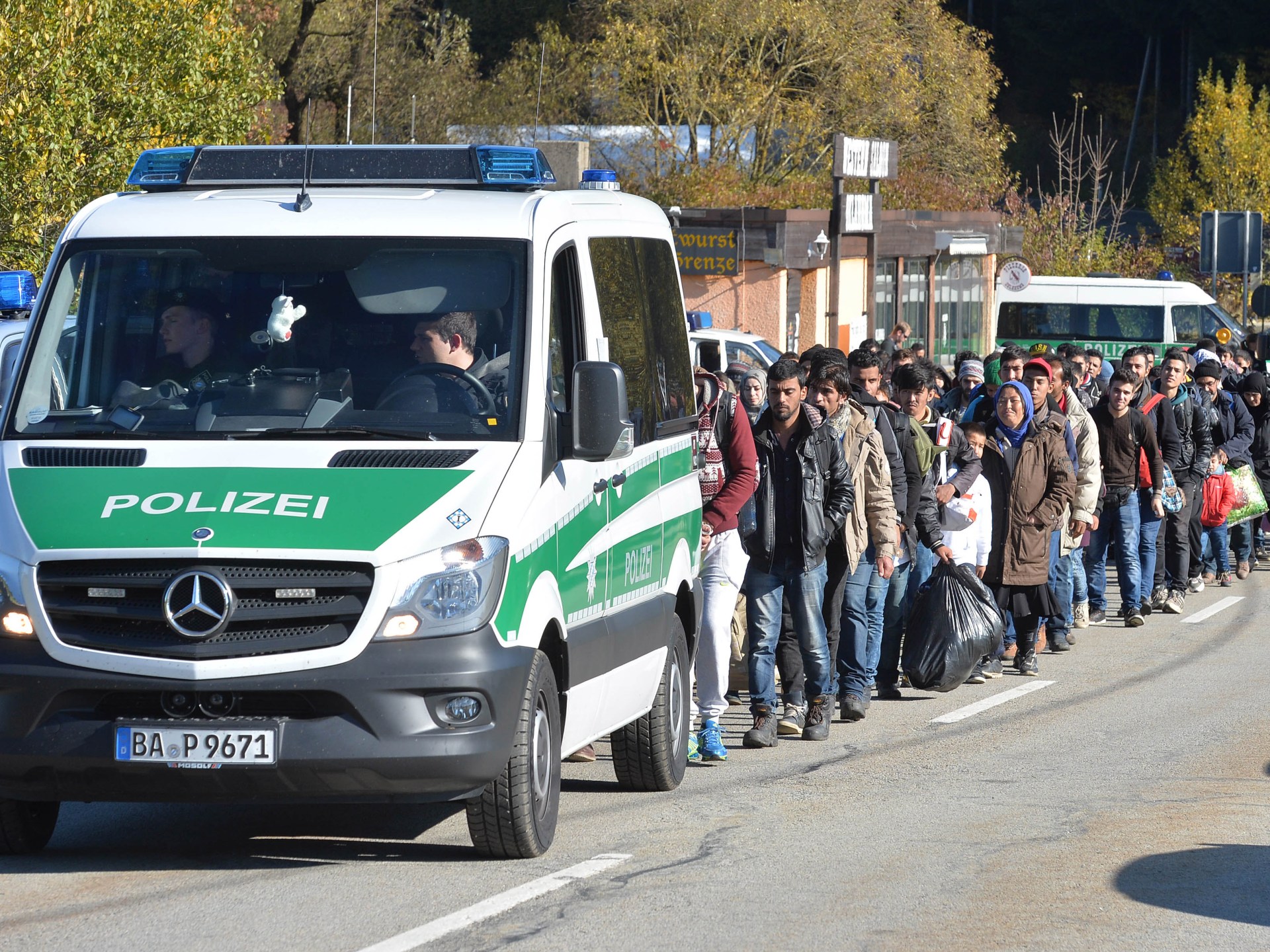Data from the German Parliament confirms that 714 Syrians were deported to a third country during 2023 (Associated Press)
Berlin -
Deporting Syrians or even encouraging voluntary return is not a new discussion in Germany. There are parties and ministers who have been trying for some time to push for the possibility of deporting Syrians who have committed crimes to Syria, especially in so-called “safe” areas.
The German Foreign Ministry confirmed - in its latest report on the security situation in Syria - that this country still poses a danger to returnees or deportees, and that a safe return of refugees cannot be guaranteed, regardless of the classification of the returning individuals, in any region in Syria.
Speaking to Al Jazeera Net, a spokeswoman for the Federal Office for Migration and Asylum - the body charged with implementing voluntary return programs - confirms that the office does not support returns towards Syria, due to the difficult security situation, stressing that the situation is being monitored by several parties, including the international organization. For immigration, not just the German authorities.
Tariq Al-Aws: Merely talking about studying the deportation of Syrians to Syria is an “irresponsible step” (Al-Jazeera)
Insistence on deportation
However, the discussion does not stop between Federal Interior Minister Nancy Pfizer and the state interior ministers, who asked her - as confirmed by the Tags Show website (a public service website) - to study the possibility of deporting those convicted of crimes to Syria, and to reconsider the possibility of supporting return. Voluntary, especially since 66 Syrians chose this return to their country, according to the same source.
This proposal came from the Minister of the Interior of the state of Lower Saxony, Tamara Zieschang, who belongs to the Christian Democratic Union Party, during the conference of state interior ministers last December. She is the same minister who was the first to demand that German citizenship be linked to recognition of Israel, but the initiative related to Syria is supported by her. At least two other state governments.
“Such initiatives (from interior ministers) are dangerous propaganda, because it is known that resuming deportations to Syria is not possible in the foreseeable future,” Martina Mauer, a spokeswoman for the Berlin Refugee Council, an independent institution, tells Al Jazeera Net.
Maor asserts that anyone who is deported to Syria is at risk of being “exposed to serious human rights violations,” and that deporting convicts after serving a prison sentence in Germany represents “a double punishment and an expression of structural racism,” as “residence laws cannot be used as alternative criminal laws.” In addition, it conflicts with the right to rehabilitation.
The same rejection is expressed by Tariq Al-Aws, the official spokesman for the “Pro Azul” organization that supports refugees, as he confirms to Al-Jazeera Net that “simply talking about conducting an examination to deport Syrians to Syria is an irresponsible step, regardless of whether they have committed crimes or not, and that the law requires providing safety.” "For those who are forcibly returned, which is not possible in Syria."
To a third party
The German authorities ended the ban on deportation to Syria at the end of 2020, which means that the possibility of deportation to this country can legally be studied, but the authorities have not carried out any deportation to Syria since the start of the ban in 2012 until now.
Germany has received about 800,000 refugees from Syria since 2015, and since then the discussion has not stopped about “integration problems,” and the media and political focus on crimes committed by some Syrian individuals or attributed to them, amid a political climate that has become hostile to refugees in general, and Arabs and Muslims in particular.
However, data from the German Parliament confirms that 714 Syrians were deported during 2023, all of them to third-party countries, which are all members of the European Union.
Germany relies on the Dublin Treaty, which allows deportation to other countries if it is not possible to return to the country of origin, especially if it becomes clear that there is another country within the Union countries that is primarily responsible for processing the asylum applications of those to be deported.
For his part, Al-Aws confirms that “Pro Azul Organization demands that the German Interior Ministry, in the event of this deportation, prove the existence of the minimum level of safe and decent living in these countries, which is not available in a number of them, such as Greece, Bulgaria, and Italy,” highlighting that the refugees there do not receive Their rights, and that rulings have been issued in several European countries against deportation to these countries.
Several human rights and media reports have pointed out the difficult conditions in refugee camps in some of these countries. Maor says that a number of refugees are fleeing from them to Germany, due to homelessness, violence, lack of government support, or the absence of relatives, which makes returning refugees to them from Germany “unacceptable” to her. Berlin Refugee Council.
Source: Al Jazeera

